Year: 2023
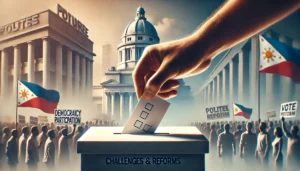
Contemporary Philippine Politics: Challenges and Reforms
The Philippines has a rich and complex political history, shaped by centuries of colonial rule and a tumultuous journey towards democracy. From Spanish colonization to American occupation, and from the Marcos dictatorship to the People Power Revolution, the nation’s political landscape has undergone significant transformations. These historical events have profoundly influenced the contemporary political scene, […]
Read More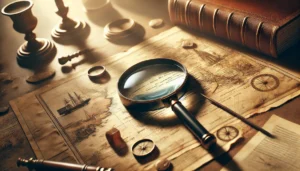
Historical Myths and Misconceptions: Debunking False Narratives
Historical myths and misconceptions have a profound impact on our understanding of the past and, by extension, our present. These false narratives, often deeply ingrained in popular culture and even educational systems, can shape national identities, influence policy decisions, and perpetuate stereotypes. As an academician and Philippine History expert, I find it crucial to address […]
Read More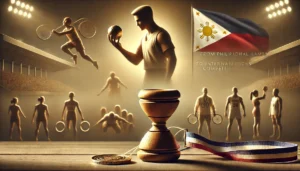
The History of Philippine Sports: From Traditional Games to International Competitions
The history of sports in the Philippines stretches back centuries before the arrival of Western colonizers. In the pre-colonial era, various indigenous games and physical activities were integral to Filipino culture, serving both recreational and practical purposes. These traditional games often mimicked hunting techniques, warfare strategies, or daily tasks, helping to develop physical skills and […]
Read More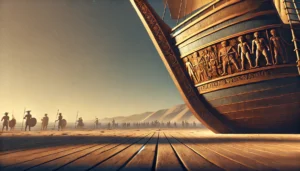
Magellan’s Arrival: The First Contact with the West
The dawn of the 16th century marked a pivotal moment in human history, known as the Age of Exploration. European nations, driven by a combination of economic ambition, religious fervor, and scientific curiosity, embarked on daring voyages across uncharted seas. Portugal and Spain led this maritime revolution, each vying for dominance in the race to […]
Read More
The Rise of Labor Unions: Advocacy for Workers’ Rights
The roots of labor unions can be traced back to the Industrial Revolution of the 18th and 19th centuries. This period marked a significant shift in working conditions as factories and mass production became the norm. Workers faced long hours, dangerous conditions, and low wages. The need for collective action became apparent as individuals found […]
Read More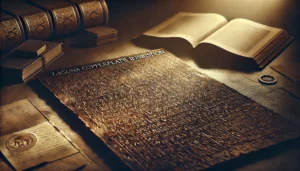
The Laguna Copperplate Inscription: Deciphering Ancient Filipino Writing
The Laguna Copperplate Inscription (LCI) stands as a pivotal artifact in Philippine history, shedding light on the archipelago’s pre-colonial past. Discovered in 1989 near the mouth of the Lumbang River in Laguna de Bay, this copper plate has revolutionized our understanding of early Filipino society, governance, and writing systems. Historical ContextThe LCI dates back to […]
Read More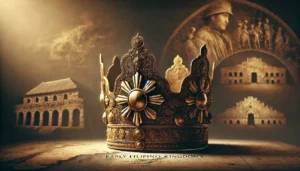
Early Filipino Kingdoms: Exploring the Political Landscape Before Colonization
The Philippines, an archipelagic nation comprising over 7,000 islands, boasts a rich tapestry of history that predates colonial influence. Long before the arrival of Spanish conquistadors in the 16th century, the islands were home to diverse societies with complex political structures, vibrant cultures, and sophisticated economic systems. These early Filipino kingdoms, often referred to as […]
Read More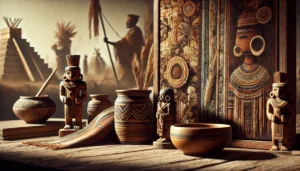
Indigenous Art and Culture: Expressions of Pre-Hispanic Life
The Philippines, an archipelago of over 7,000 islands, boasts a rich and diverse cultural heritage that predates colonial influence. Indigenous art and culture in the Philippines offer a fascinating glimpse into the pre-Hispanic life of the archipelago’s earliest inhabitants. These expressions of creativity and tradition have survived centuries of change, providing invaluable insights into the […]
Read More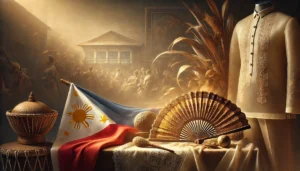
The Emergence of Mestizo Culture: Blending Filipino and Spanish Traditions
The arrival of Spanish colonizers in the Philippines in 1565 marked the beginning of a significant cultural transformation that would shape the archipelago for centuries to come. Spanish rule in the Philippines lasted for more than three centuries, from 1565 to 1898. During this period, the interaction between the indigenous Filipino population and the Spanish […]
Read More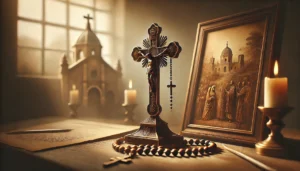
The Role of the Catholic Church in Colonial Philippines: A Comprehensive Analysis
The Catholic Church’s influence in the Philippines began with the arrival of Spanish colonizers in the 16th century. The Spanish expedition of 1521 led by Ferdinand Magellan marked the first introduction of Catholicism to the archipelago. This initial contact, though brief, set the stage for the subsequent colonization and widespread Christianization of the Philippines. In […]
Read More